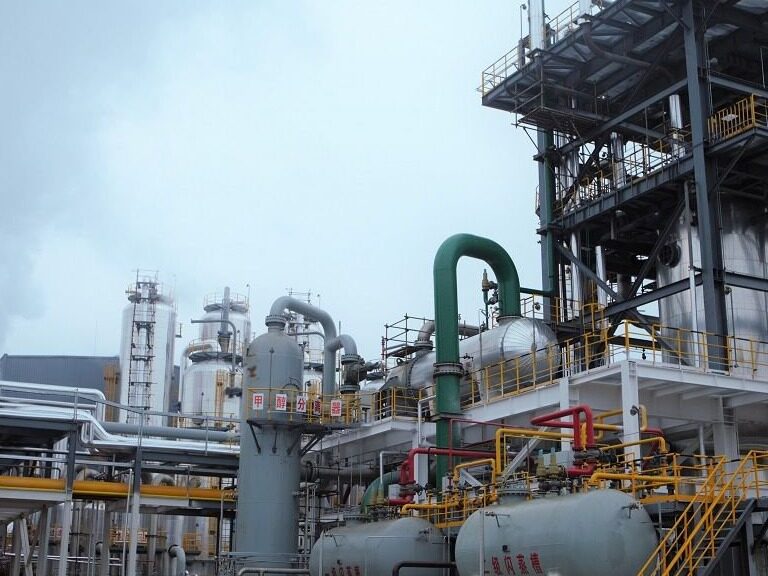- Singapore expects hydrogen to meet half of the country's electricity needs by 2050
- The Singapore government will support enterprises from three aspects: the development of hydrogen power stations, the improvement of global supply chains, and research and development

With the transformation of the global energy pattern, the development of clean energy has become the goal of energy transformation in various countries. Recently, Singapore released a strategy to make hydrogen energy account for half of the fuel for power generation by 2050, and relevant companies have accelerated their development. 90% of Singapore's natural gas supply relies on imports. The Singapore government focuses on getting rid of its dependence on natural gas and decarbonization, and will support the practical application of hydrogen power stations and supply chains. Singapore Deputy Prime Minister and Minister of Finance Huang Xuncai said at the Singapore International Energy Week that hydrogen energy may become the next pioneering field.
Hydrogen does not release carbon dioxide when burned. Green hydrogen that uses renewable energy to split water can also be considered to have zero carbon dioxide emissions during production. As with natural gas and coal, burning energy can drive turbines to generate electricity, but the risk of accidental ignition of hydrogen is high and difficult to deal with. Large-scale power generation turbines are still under development, and the best method of transportation has not been established.
Singapore aims to be carbon neutral by 2050. At the above-mentioned energy week event held in October 2022, Lawrence Wong announced the launch of the "Singapore National Hydrogen Energy Strategy" that uses hydrogen energy as the main fuel for power generation. With the advancement of technological innovation, hydrogen energy is expected to meet half of the country's electricity demand by 2050.
Subsequently, the Singapore Energy Market Regulatory Authority will start to formulate relevant regulations in January 2023. With regard to new and rebuilt gas-fired power stations, the industry has proposed to the industry that it is necessary to install equipment with a hydrogen fuel ratio of more than 30%, and has begun to listen to opinions. A plan to fully switch to hydrogen fuel in the future has also been proposed. In addition, in order to establish a safe and cost-effective hydrogen fuel supply chain, the government will support companies in the following three aspects: the development of hydrogen power plants; the improvement of the global supply chain; and research and development.

In terms of enterprises, Singapore's government-affiliated large enterprises and Japanese enterprises leading in hydrogen energy technology play a flagship role.
Keppel, in cooperation with Japan's Mitsubishi Heavy Industries and IHI Corporation, decided to build Singapore's first hydrogen-capable power plant on Jurong Island, with a total project cost of approximately US$570 million. Its generating capacity is 600,000 kilowatts, equivalent to a small nuclear power plant. All parties will strive to start the power plant in the first half of 2026. Initially, natural gas will be used as the main fuel, and then the amount of hydrogen fuel mixed will be gradually increased.
Sembcorp Industries Co., Ltd., which is affiliated with the local government, will work with IHI to establish an ammonia fuel supply chain produced from green hydrogen, and has reached an agreement on the commercialization of ammonia fuel power generation. Sembcorp is also considering importing 60,000 tonnes of hydrogen fuel per year from Australia and the Middle East to the Jurong Island facility using the hydrogen fuel storage and transportation technology of Japan's Chiyoda Chemical Construction Company. This transportation scale is expected to become the largest in Asia.

Keppel and Sembcorp used to focus on the construction of oil drilling rigs, but now they are shifting their focus to renewable energy and other environmental protection businesses. The strengthening of the hydrogen business is also part of this business restructuring. Keppel plans to increase its renewable energy generation capacity from 2.6 million kilowatts in 2022 to 7 million kilowatts by 2030. Hydrogen power generation can also speed up the decarbonization process if it is on track.
The reason for Singapore's transition to hydrogen energy is its over-reliance on natural gas. Since most natural gas is imported, this dependence is not only a stumbling block to decarbonisation, but also a risk to energy security. Directly affected by changes in market conditions recently, household electricity bills in Singapore have risen by 45% in a year and a half since the beginning of 2021.
In an effort to revitalize renewable energy, Singapore has installed solar panels on every corner of its tiny land, but there is little scope for further expansion. While imports of electricity from renewable sources have already begun in 2022, few countries are currently actively exporting this sector.
So, Singapore noticed hydrogen energy. Singapore will take advantage of the flexibility of a small country to improve the transportation, storage and power generation infrastructure of hydrogen energy. Singapore hopes to serve as a showcase for related industries, and its purpose of attracting powerful enterprises and funds is evident.Editor/Ma Xue
Comment
 Praise
Praise
 Collect
Collect
 Comment
Comment
 Search
Search














Write something~